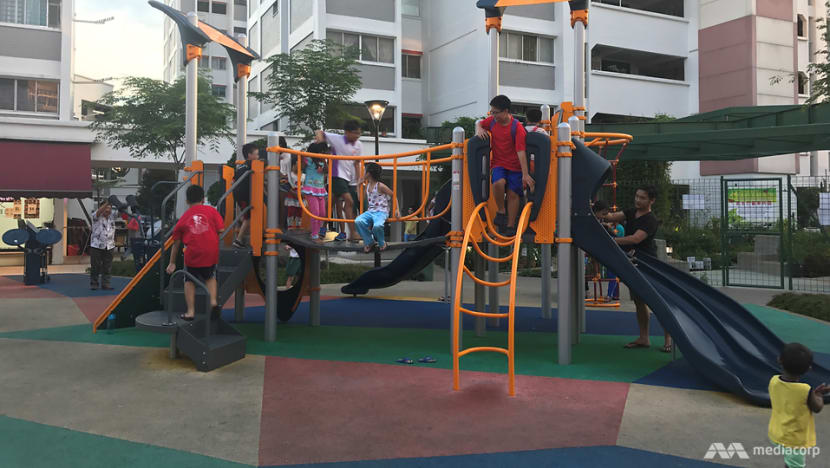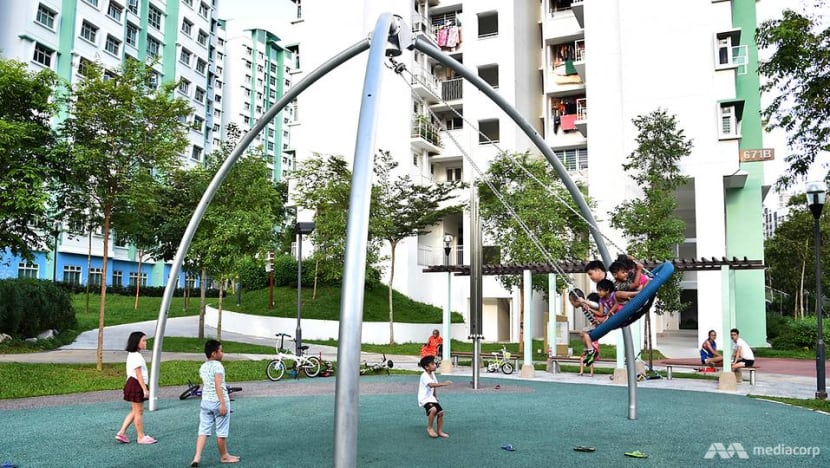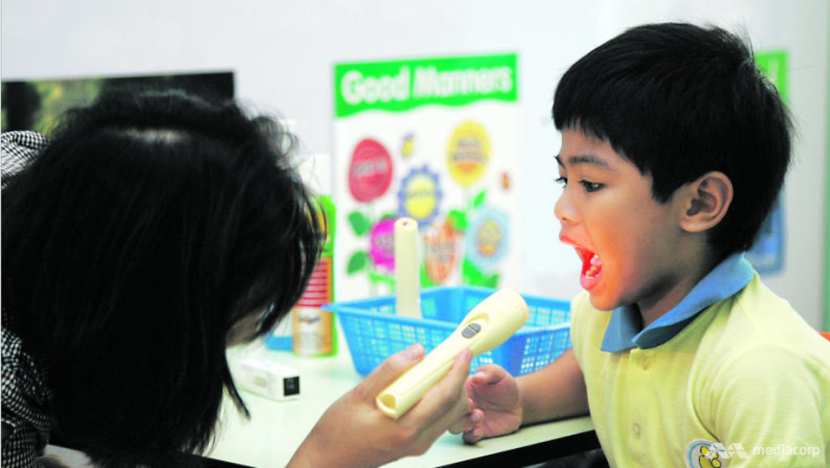commentary Commentary
Commentary: Exposing your children to dirt boosts their immune system
Parents want clean, sterilised environments for their children. But children need exposure to dirt to develop healthy immune systems, argue two paediatricians.

File photo of children playing at a playground.
SINGAPORE: Sometimes, when looking around us, the world seems like a harrowing and terrifying place to live in. It can be nerve-racking for a parent to confront the endless list of chronic conditions and infectious diseases that children can catch, especially with news that this year marks the peak period for hand, foot and mouth disease (HFMD), where the virus is likely to re-emerge and result in an outbreak.
So surrounded by dirt, grime and the chances of catching something from school, many of us desperately – and with the best intentions - try to create an environment for our children that is as clean and safe as possible.
Many Singaporeans believe that dirt and germs should be avoided, and that exposure to these elements results in disease. Consequently, many Singaporean parents are highly particular about hygiene for their children. They bring anti-bacterial wet wipes and hand sanitizers to clean their children’s hands when going out.
Even when indoors or at home, they frequently instruct their children to wash their hands whenever they touch any surface perceived to be “dirty”. Is it any surprise that most of our children grow up in clean, disinfected and sterile homes but many end up developing allergies or asthma?

AVOIDING DIRT TO AVOID GERMS
There are many reasons why parents avoid exposing their children to dirt and feel the need to clean their children compulsively. For one, dirt contains germs that spread illnesses. Apart from repeated reports about various epidemics in the world and in the region, such as the recent H7N9 avian influenza outbreak in China, there is also the general fear of public areas like the playground acting as breeding areas for germs.
While some of these fears may have some basis, there is emerging evidence that over-sterility leads to a whole host of problems.
Viruses, which make up the pre-occupation of worried parents, are generally considered harmful, and they spread many types of disease, such as influenza and HFMD. However, most viruses, like the flu, can only be transmitted through direct contact with a person carrying the virus. Viruses are not a component in dirt.
There are different types of bacteria in dirt as well. Some, like viruses, are harmful and can cause diseases, such as pneumonia. Yet, others are benign and are important for the day-to-day functioning of the body. For example, millions of good bacteria inhabit the human gut and skin and form a vital part of the human digestive process, and immune system.
While a certain degree of cleanliness and hygiene is desirable in helping to maintain our children’s well-being and preventing communicable diseases, there is increasing evidence that over-emphasis on hygiene and the resultant overly sterilised lives has resulted in an increase in the occurrence of certain types of conditions.

These include auto-immune diseases and allergic diseases such as asthma, eczema, food allergy and allergic rhinitis. It seems not exposing our children to common microbes and bugs present in dirt leave them with a highly sensitive immune system that is more susceptible to inflammatory diseases and dangerous infectious agents.
These can be serious and are no less dangerous than the infectious diseases children can catch from exposure to viruses.
Every year, asthma causes 2.6 out of 100,000 people to die in Singapore, which is equivalent to half the number of people who die in road traffic accidents in Singapore. Allergic rhinitis is another troubling disease which causes disturbed sleep and blocked noses, often worsening asthma control.
A number of studies performed in Europe demonstrated that the prevalence of these allergic diseases is significantly lower in rural regions, like farms, as compared to urbanised areas. Experts think this may be the case because people who are born in rural regions are exposed to more dirt and germs in the early stages of their lives compared to those who live in the city.
It seems exposure from a young age to a greater variety of benign bacteria may aid in immune development and may be critical in shaping a child’s future immune responses at a critical stage when his or her immune system is developing and learning.

Overuse of antibiotics has similarly resulted in a host of problems. Used correctly at the correct levels to tackle harmful bacterial infection, antibiotics are truly a wonder and have saved countless lives.
However, when used inappropriately, for instance, when wrongly applied to diseases caused by viruses, which do not respond to antibiotics, or used excessively, problems ensue. Antibiotics alter the balance of bacteria in the gut, which can result in severe gut infections. This can also impair normal healthy digestion, since good bacteria are needed for the process of digestion.
Along with this excessive fear of dirt, germs and diseases, many medications such as paracetamol and ibuprofen are prone to excessive use by frantic parents, especially after the symptoms that they meant to treat have already subsided. This has been associated with the onset of allergic diseases like asthma as well.
So all in all, while appropriate avoidance of dirt and grime remains important for health, there is increasing evidence that over-avoidance results in a significant amount of harm to the body as well.
The challenge for each child is to maintain an optimal balance between avoidance and exposure to germs.
However, it seems that being too clean is worse than being too dirty and with over-zealous parents watching the kids, the chances of being too clean may be higher than being too dirty.
So perhaps parents should think through carefully next time before whipping out those anti-bacterial hand wipes. Perhaps a little germ is a good thing.
Dr David Ng and Professor Hugo Van Bever work at the Department of Paediatrics at the National University Hospital of Singapore.
















